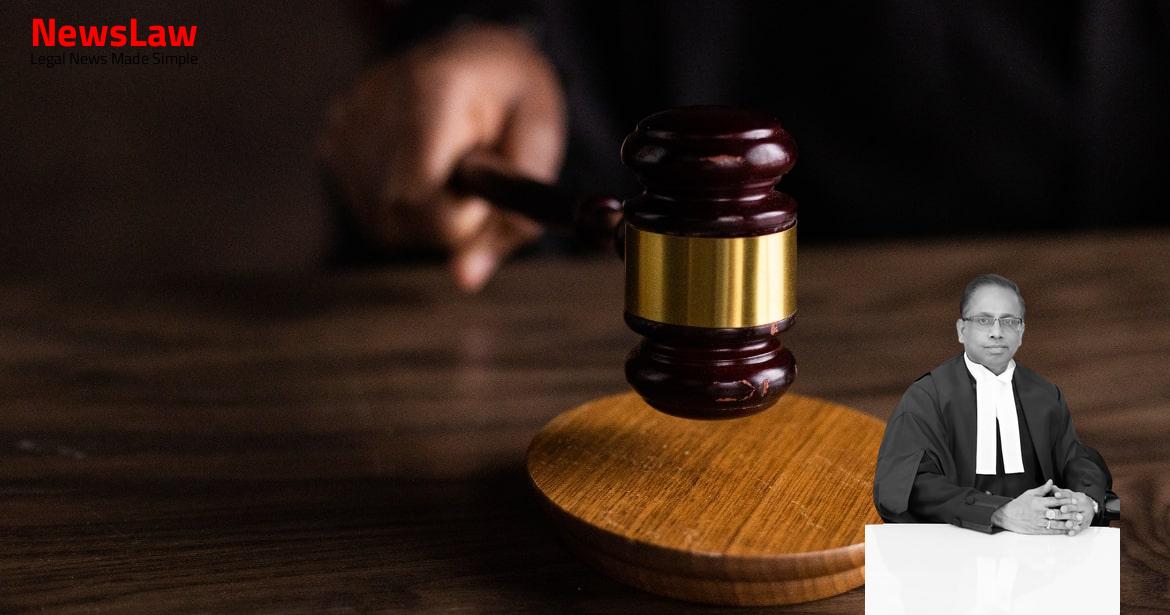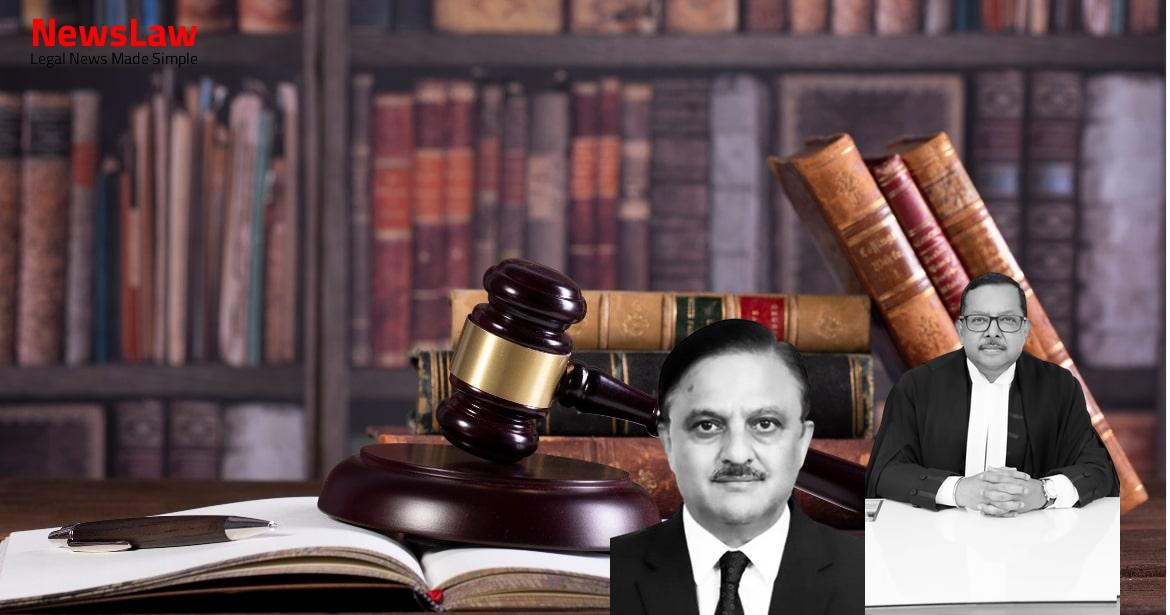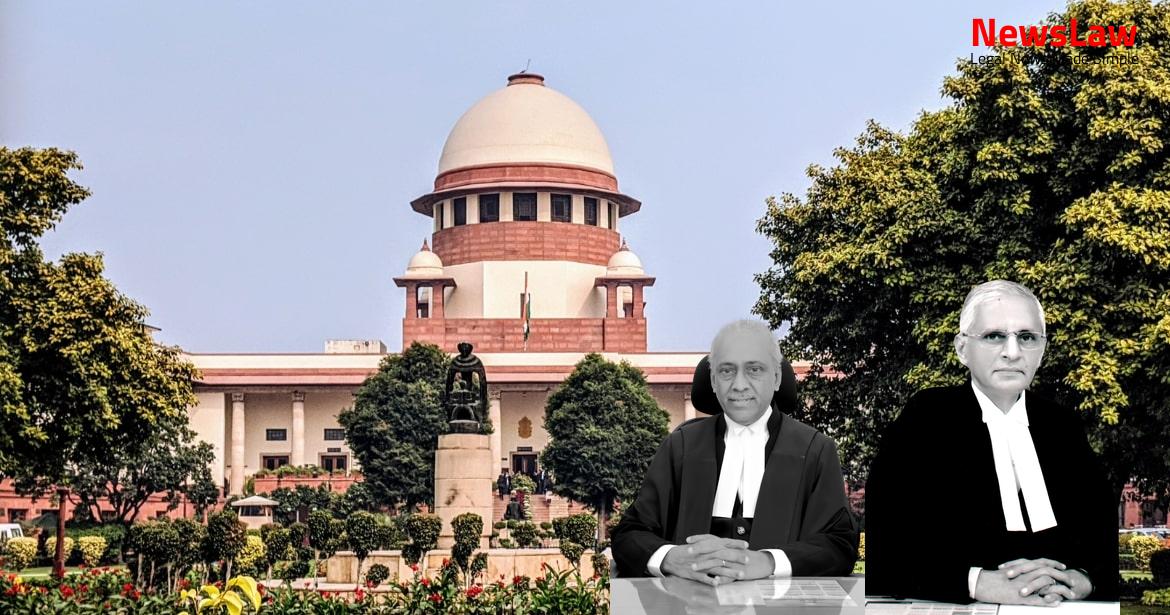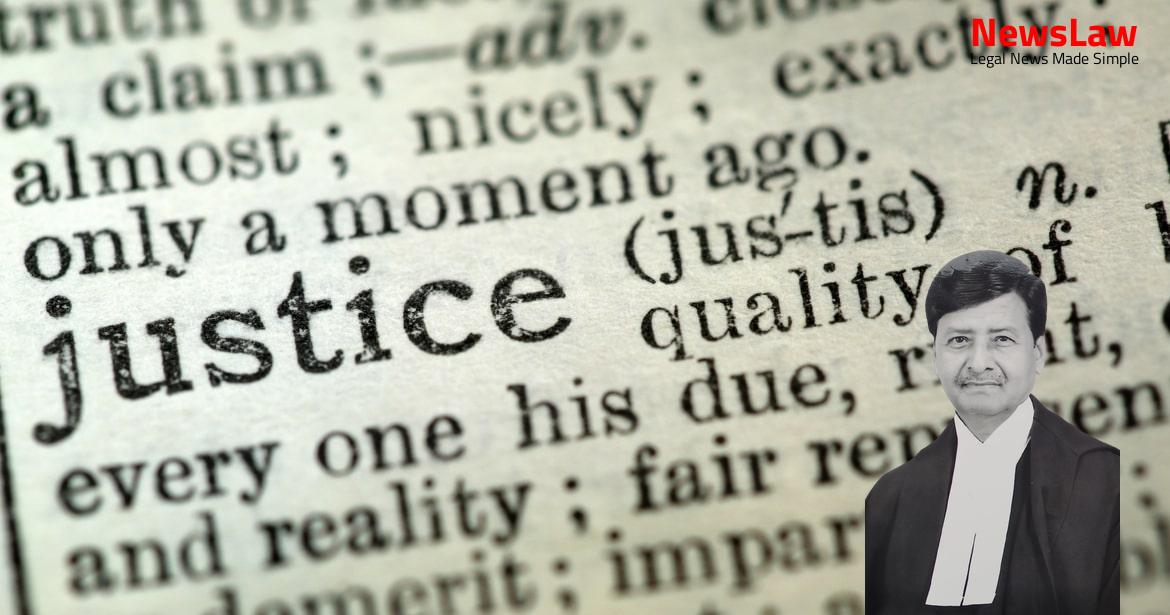Dive into the legal battleground of K.P. Khemka vs. Haryana State Industrial and Infrastructure Development Corporation Limited, where the appellants challenge the recovery of time-barred debts under the Haryana Public Moneys (Recovery of Dues) Act, 1979. Explore the nuanced arguments presented by both the appellant and respondent as they navigate the complexities of debt recovery laws and judicial interpretation. Gain insights into the precedent-setting Supreme Court verdict that sheds light on the dynamics of financial recoveries and legal rights in the realm of public moneys.
Facts
- The Division Bench applied the principle that the Limitation Act only bars the remedy and does not extinguish the debt.
- The High Court dismissed the writ petitions and rejected the appellants’ contention that a time-barred debt under the Limitation Act cannot be recovered under the Haryana Public Moneys (Recovery of Dues) Act, 1979.
- The appeals arise from the judgment of the High Court of Punjab and Haryana at Chandigarh dated 24.04.2015 in CWP No 15983 of 2013 and CWP No 26452 of 2014.
- Respondent No.3, a company, became a Sick Company and was referred to the Board for Industrial and Financial Reconstruction (BIFR).
- Haryana Financial Corporation sent a notice for taking over possession of the company’s assets on 19.08.1999 and took possession on 31.08.1999.
- Legal opinion advised that a certificate could be sent to another Collector under Section 3 of the Revenue Recovery Act.
- Outstanding amount to HSIDC Ltd. on 31.07.2006 was Rs.99.32 lakhs.
- Appellants cited a three-Judge Bench judgment in State of Kerala vs. V.R. Kalliyanikutty & Anr. (1999) 3 SCC 657 to argue that a time-barred debt under the Limitation Act cannot be recovered under the Recovery of Dues Act.
- Recovery Certificate issued on 10.08.2005 under Haryana Public Moneys (Recovery of Dues) Act, 1979.
- Recovery Certificates returned in 2001 as no properties were available in names of directors/guarantors.
- Appellant, after resigning from Directorship, received a settlement from the Company on 23.10.1998.
- Challenged order under Section 32(G) of the State Financial Corporation Act for recovery of Rs.14,55,11,275 as recovery was time-barred.
- Statements by Haryana Financial Corporation on recovery notices issued and possession taken over mortgaged properties.
- Primary security disposed for Rs.61.00 lakh on 16.12.1999 with a limitation of three years for recovery.
- Appellants challenged proceedings dated 06.08.2014 through a Writ Petition which was dismissed.
- Multiple recovery notices issued leading to determination of sum due from the Appellants.
- Loan recalled by Haryana Financial Corporation on 29.07.1998.
- Loan disbursed to Respondent No.3 on 31.03.2003.
- BIFR declined the Reference and One-Time Settlement request of Respondent No.3 on 07.03.2003.
- Winding up petition filed against Respondent No.3 on 25.09.2007 with a final order passed on 24.03.2009.
Also Read: NIACL vs. Flat Products: Legal Battle Over Depreciation Calculation
Issue
- Whether the phrase ‘amount due’ refers to amounts repayable under the Loan Agreement regardless of whether the claim is time-barred.
- Clarification needed on whether ‘amount due’ includes only legally recoverable claims.
- The Bench addressed the interpretation of ‘amount due’ in the context of the Loan Agreement.
- Resolution required on whether ‘amount due’ covers all amounts under the Agreement or only legally enforceable amounts.
Also Read: State v. Accused: Murder Conviction and Sentencing
Arguments
- Learned counsel for the respondent-Corporations refuted the contentions of the appellants.
- The impugned order was deemed justified by the respondent-Corporations in not considering the decision in V.R. Kalliyanikutty (supra) in conjunction with Bombay Dyeing and Tilokchand Motichand cases.
- The questions for consideration include whether the recovery proceedings under the Recovery of Dues Act against the appellants are barred as per the principle in V.R. Kalliyanikutty (supra).
- Another question is whether the decision in V.R. Kalliyanikutty (supra) contradicts the holding in Bombay Dyeing and Manufacturing Company Limited (supra) and the course of action for the two-Judge Bench if so.
- The contention is that according to the reasoning in V.R. Kalliyanikutty (supra), the term ‘due’ in the Recovery of Dues Act does not encompass time-barred debts.
Analysis
- The Court rejected the plea that the statute of limitation only bars the remedy and does not affect the right.
- Rights of the parties are not enlarged by the Kerala Revenue Recovery Act, and it merely provides a process for the speedy recovery of moneys due.
- The State Government issued notifications making the provisions of the Act applicable to the recovery of amounts due from banks and the Kerala Financial Corporation.
- The Act does not create any new right, and it allows for coercive recovery of amounts due.
- Legal rights, powers, and liabilities are distinguished, and the Act does not alter a debtor’s right to challenge a time-barred claim.
- The Act aims for speedy recovery without enlarging legally recoverable claims.
- Payment under protest entitles the debtor to file a suit for refund, preserving the right to challenge the recovery.
- The Act does not enlarge the claim that is legally recoverable, even if the civil suit is time-barred.
- The Act allows for a creditor to recover through a different process instead of filing a civil suit, but the extent of recoverable claims remains unchanged.
- Enforcement powers under the Act are distinct from civil suits and continue despite limitations on civil suits.
- It is essential for an Act to expressly provide for the recovery of time-barred claims, and such recovery may infringe on a debtor’s Article 14 rights.
- Section 32-G of the State Financial Corporations Act authorizes the Corporation to recover amounts due to it from industrial concerns.
- The Corporation has special privileges for enforcement of its claims against borrowers.
- Section 71 allows the Act to be extended for recovery of certain dues deemed necessary in the public interest.
- The Recovery of Dues Act defines a ‘defaulter’ and enables recovery of dues as arrears of land revenue.
- The Act allows officers or Managing Directors to issue certificates for recovery of sums due from defaulters as arrears of land revenue.
Decision
- The matter needs to be placed before the Hon’ble Chief Justice of India for consideration by a three-judge bench.
- Comprehensive consideration of all aspects is required for an authoritative pronouncement.
- In view of the points discussed earlier in the judgement, a three-judge bench is deemed appropriate.
- The decision-making process should take into account all aspects including those previously addressed.
Case Title: K.P. KHEMKA Vs. HARYANA STATE INDUSTRIAL AND INFRASTRUCTURE DEVELOPMENT CORPORATION LIMTED AND ORS (2024 INSC 396)
Case Number: C.A. No.-006144-006144 – 2024



